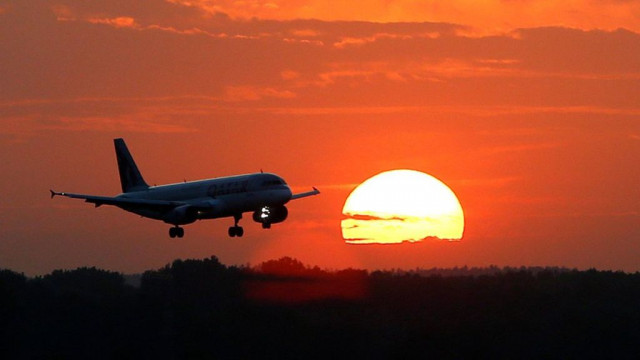CAA upgrades its eyes in the sky
New radar systems to boost country’s surveillance capabilities

Representational image. PHOTO: REUTERS
According to the details provided by the CAA, the government has installed upgraded radar systems at the Jinnah International Airport in Karachi, Allama Iqbal International Airport in Lahore, Islamabad International Airport in the capital, and critical locations across Balochistan.
Manufactured in the Czech Republic and Spain, the newly-installed radars support the central air traffic management systems of the main airport facilities at Karachi, Lahore and Islamabad. In the long run, the radar systems are also expected to enhance the range of monitoring and detection of civil air traffic.
The installation of the new technology comes at a time of high tension between Pakistan and India.
In February this year, New Delhi's fighter jet was gunned down by Pakistan Air force for attempting to intrude the country's airspace. After the aerial dogfight between the two ratcheted up tensions, Pakistan closed its airspace to Indian traffic. Ties between the two arch-rivals were downgraded further after India launched a campaign of oppression in occupied Kashmir.
"The installation of these radars is well-timed. They will provide the much-needed boost to our surveillance capabilities," said an expert.
According to the CAA, the wide-range radars, equipped with advanced surveillance technology, can locate a foreign aircraft at a distance.
In addition to their surveillance capabilities, the new radars will improve Pakistan's aviation operations and increase the country's standing in global aviation ranking.
As the regulator of unarmed aviation operations in the country, the Civil Aviation Authority is responsible for protecting airspace. The aviation body not only plays the role of a regulator but at the same time performs functions of Air Navigation Services and Airport Services.
In the wake of the recent sparring between India and Pakistan that threatened to spiral out of control, Islamabad has taken several measures to boost its defense. The military has successfully conducted several missile tests including surface-to-surface ballistic missiles capable of carrying nuclear warheads.
In August, the Pakistan tested another surface-to-surface ballistic missile capable of delivering multiple warheads up to 290 km.



















COMMENTS
Comments are moderated and generally will be posted if they are on-topic and not abusive.
For more information, please see our Comments FAQ